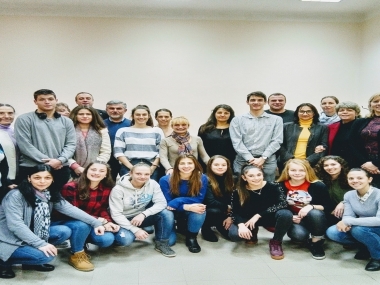Sofia: sports to keep young people engaged
Edited on
05 June 2019Sofia, the capital city of Bulgaria, created a Municipal Education Fund to support micro-actions that contribute to the prevention of ELET. In 2018 it initiated the Youth Referee Academy, an educational sports programme, which seems to effectively entice young people to continue education, gain qualifications.

Passion for sports
Sofia has been active in the field of physical education, sport and youth activities. In 2018 it earned the city the title of European Capital of Sport –and Sofia was subsequently host for several international championships.
Within this context, Sofia has had a particular focus on co-financing extra-curricular activities of educational institutions and non-government organisations related to sport, physical activity and health. Moreover, sports is considered a social activity, and thus a path to integration, prevention and socialisation.
This shared perspective led to the creation of the educational programme Youth Referee Academy in collaboration with National Federations, the National Sports Academy, the University for Sport in 2018. It focuses on pupils from secondary schools, mainly from vulnerable groups, on the verge of dropping out but with a passion for sports. The programme provides these people opportunities for personal development, career management and entrepreneurship by involving them in the organisation, logistics of sport events and preparing them for jobs like sport referees and stewards. Young people learn about responsibility –f.e. guarding fair play–, how they make a difference in sports (competitions).
Complementary projects
Additional projects were launched: Parents Association, to create effective communication between parents, teachers and students; And the Ready For School programme, using fun activities to engage pre-schoolers from the Roma community.
Involving diverse stakeholders
To motivate young people –and earn their trust–, stimulate dialogue between the committed institutions and provide sufficient support, a diversity of people, professionals were involved: from teachers, professors, parents, psychologists, to professional athletes and sports journalists.
More than seventy percent of the enrolled students have passed the theoretical and practical tests of the Young Referees programme. This shows that an inclusive educational model, capitalising on students’ interests, can keep young people engaged.
Submitted by Matthias Peynshaert on
